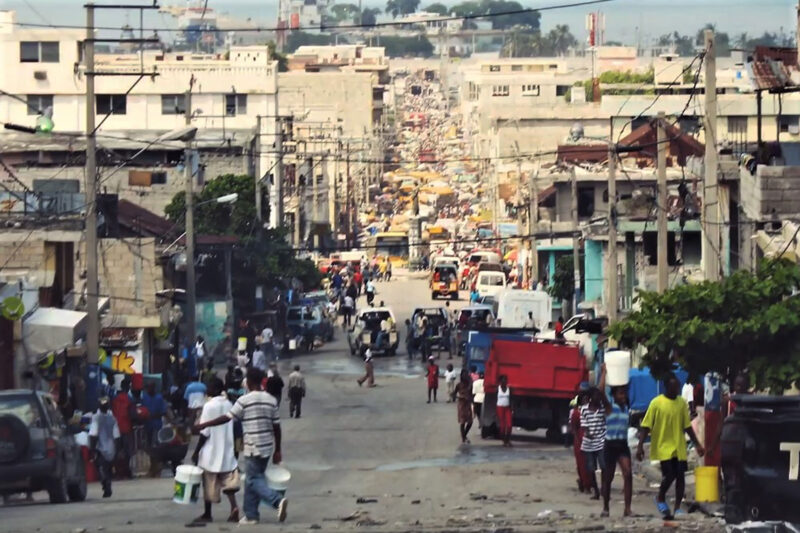The battle for the streets of Haiti between organized gangs and grassroots vigilante groups has escalated in recent weeks. Maria Isabel Salvador, head of the UN Integrated Office in Haiti (BINUH), reported to the Security Council on July 6th, 2023 that “Since April, BINUH has documented the killing of at least 264 alleged gang members by vigilante groups.” The violence is concentrated in the capital, Port-au-Prince, where a band of civilians dubbed “Bwa Kale” – Haitian creole slang for erection – routinely execute perceived criminals, often by brutal methods including stoning, burning and beheading.
The emergence of powerful vigilante groups like Bwa Kale has received a mixed reaction in Haiti. Ariel Henry, the de facto Prime Minister in the absence of an elected government, condemned “sordid” vigilantism in a speech on May 1st, 2023. Others, however, have welcomed the development. The Haitian Centre for Analysis and Research in Human Rights (CARDH) has credited Bwa Kale with reduced rates of murder and kidnapping by gangs. The Executive Director of CARDH, Gédéon Jean, described the vigilante violence as “self-defence” in an interview with the New York Times in June.
Despite Bwa Kale’s success at intimidating the gangs, vigilantism is not a sustainable solution to Haiti’s criminality crisis. There are several notorious criminal organisations throughout Central and South America which originated as vigilante groups. Los Viagras, a drug cartel based in Mexico, developed from vigilante groups established to protect civilians from gang violence, but now it too terrorises civilians. There are already signs that Bwa Kale could degenerate likewise and come to resemble the very gangs which it formed to combat. CARDH reported in July that some of Bwa Kale’s victims are not gang members but the relatives of gang members, and some killings are motivated by personal reasons including “settling scores.” Another Haitian human rights group, the National Network for the Defence of Human Rights, reported in May that Bwa Kale threatens those who speak out against it.
The turmoil in Haiti began when President Jovenel Moïse was assassinated in July 2021. No elections have taken place since and gangs have taken advantage of the ensuing power vacuum by consolidating their territorial control, especially in Port-au-Prince. The catalyst for the popular revolt against the gangs was the interception by police of a bus carrying bandits and weapons on April 24th, 2023. A mob gathered and killed thirteen alleged gang members, setting some on fire with tyres. Footage of the event was shared widely on social media.
Vigilantism is not the answer, but something must be done to establish stability and security in Haiti. Prime Minister Henry and UN Secretary General António Guterres have both called for an international force to help the poorly resourced Haitian police fight the gangs, although few states have shown willingness to contribute. William O’Neill, the UN human rights expert on Haiti, described such a force as “essential to restore freedom of movement” in a speech on June 28th, 2023. O’Neill said “History has shown that popular justice and its many excesses have never made it possible to resolve violence.”
- Cyprus Urges EU To Permit Return Of Syrian Refugees - December 27, 2023
- China And Syria Announce “Strategic Partnership” While Syrians Suffer - December 15, 2023
- U.S. Waives Human Rights Conditions To Grant Egypt Military Aid - November 22, 2023


